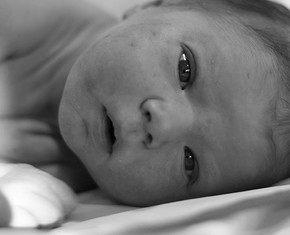The views expressed in our content reflect individual perspectives and do not represent the authoritative views of the Baha'i Faith.
What happens when we die? Do our souls live on, or do we perish into nothingness?
The Baha’i teachings say that this life and the spiritual life beyond our physical existence are really one and the same. That’s the reason for such a forceful emphasis in the Baha’i writings on the strategic relationship in our physical lives between our actions and our spiritual development.
The Baha’i teachings are very existential in this regard. In no sense is physical life viewed merely as a period of waiting until one enters a spiritual realm. The physical world, properly understood, is an integral part of spiritual reality, indeed, a precise expression of that world. But if our actions greatly affect our spiritual progress during our physical existence, we might reasonably assume that our overall performance on earth might likewise have a significant effect on our spiritual existence in the afterlife.
Therefore, the critical question of the nature of that relationship between our earthly lives and our eternal spiritual destiny is our final concern in examining the spiritual purpose of physical reality.
The Fear of Death
In the Baha’i paradigm of divine justice our departure from the physical world is not portrayed as a separate venture, not really an “afterlife,” but a continuation of the same life, at least in terms of our soul and conscious self:
Didst thou behold immortal sovereignty, thou wouldst strive to pass from this fleeting world. But to conceal the one from thee and to reveal the other is a mystery which none but the pure in heart can comprehend. – Baha’u’llah, The Hidden Words, p. 36.
While noble aspirations and actions in the physical world are extremely important in determining our spiritual condition when we enter the next stage of our life, the afterlife according to the Baha’i paradigm of reality is not, in any ordinary sense, merely a “heavenly” experience based on the result of our efforts made in the physical phase of our eternal existence. For if our physical life has as its primary objective the development of spiritual faculties and the incremental improvement of our soul in preparation for a more expansive life and a more complete encounter with reality, we can be assured that the continuation of our life has these same objectives.
Of course, belief in a continuation of life after the soul dissociates from the physical body is not necessarily comforting.
After all, this continuity might imply that all the arduous efforts we have made at spiritual transformation in our physical life lead only to further challenges in the next stage of our existence. But perhaps the most startling realization we come to as we consider this promise of future existence is the simple fact that there is ultimately no escape from ourselves!
This is a matter well worth pondering for a moment or two, for if we are unhappy or dissatisfied with who or what we are now, and if the soul continues after the body perishes, will we not likely be just as disappointed after death? Certainly the nature of the challenges we will face in an entirely spiritual realm will be significantly different from the trials we presently confront, and that’s comforting. After all, physical difficulties probably account for the greater part of our struggle in this life—aches and pains, dentist appointments, financial hardships, car repairs, and the like. In the next life, all these mundane concerns will have vanished.
We can only guess at how our lives will proceed in the next world insofar as a regimen of spiritual development is concerned, but in the Baha’i teachings we can discover some profound and important realities about that existence and, more to the point, about the relationship between this life and the next. In particular, we are able to discover the relationship between what we do in the physical part of our existence and what we experience in life beyond this world, a source of great concern for the followers of many systems of belief.
On the one hand, the Baha’i teachings seem totally comforting in this regard. Repeatedly in his writings Baha’u’llah emphasizes that were we to understand adequately the operation of God’s creation, we would cast aside all fears of death: “I have made death a messenger of joy to thee. Wherefore dost thou grieve?” – Ibid., p. 11.
Nevertheless, most of us continue to fear death, and for many understandable reasons. If we do not believe in the continuity of the soul and our consciousness after death, we may dread the prospect of nonexistence. If we do believe in a continuation of our lives, we may be concerned about what sort of judgment awaits us. If we are dissatisfied with who we are or what we have become, we may fear the inability to escape from our own consciousness, in which case the prospect of nonexistence might seem appealing.
But if there is nothing to fear—if, as Baha’u’llah says, death is “a messenger of joy”—we cannot help asking why so little is revealed to us about that existence. Why, in other words, are we not given ample detail about how our development will continue so that we can accept this assurance, become comforted by it, and approach our physical tasks with relief and enthusiasm?
In the next essay in this series, we’ll explore those questions, and see if we can find answers in the Baha’i teachings about our inevitable physical death and what lies beyond it.
















Comments
Sign in or create an account
Continue with Googleor